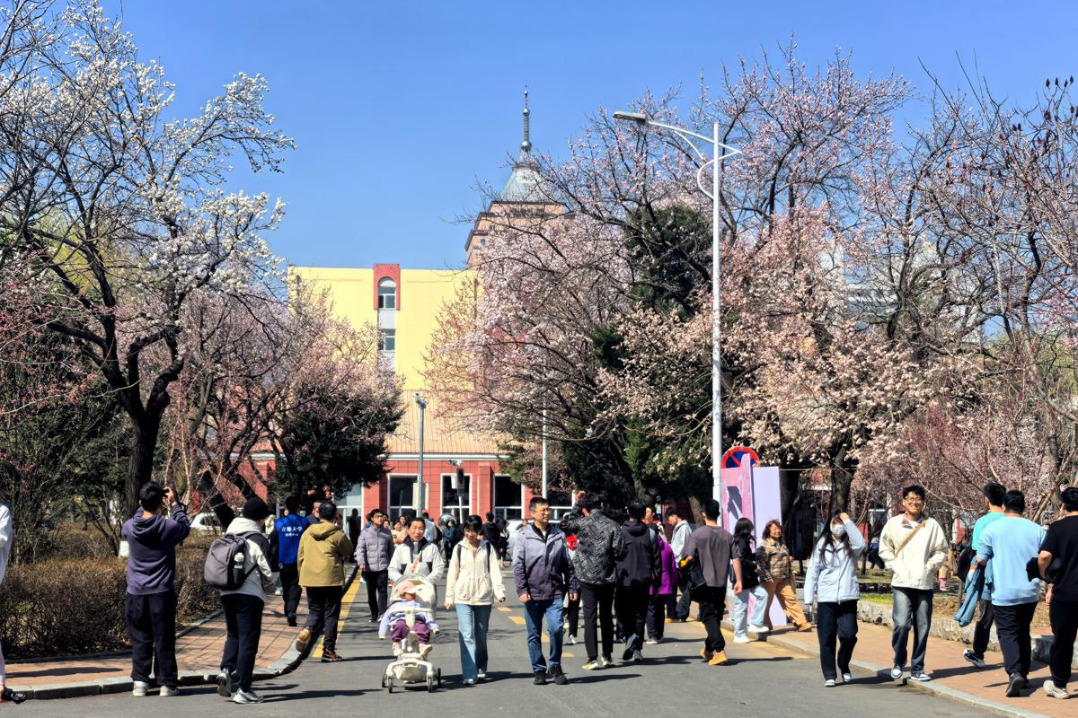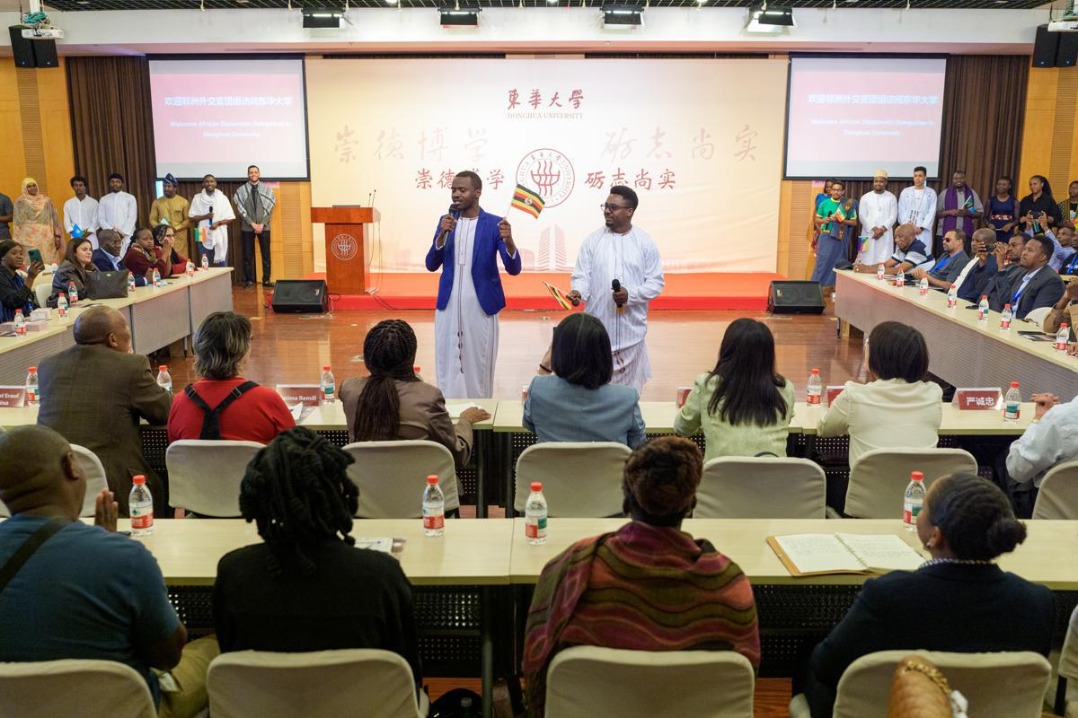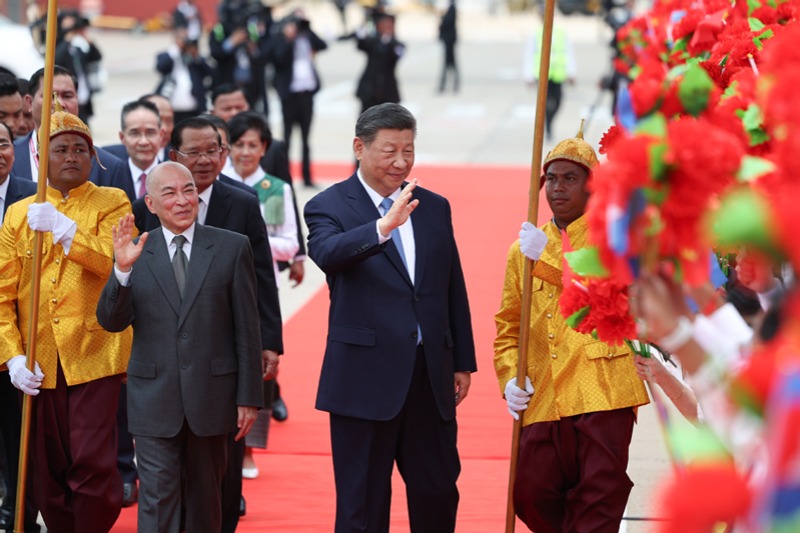Farmers attract sales with live broadcasts

As a flurry of animated "thumbs-up" and "like" icons popped up on her mobile phone, 24-year-old fruit farmer Han Mei attracted over 5,000 viewers on her livestream during one recent afternoon.
Unlike other "cyber stars" doing livestreams of musical performances or of themselves playing games, Han attracted 90,000 followers by selling fruit, such as peaches and persimmons, and sharing her country life in her hometown of Difang town in East China's Shandong province.
Over the past nine months, the turnover of her online store has exceeded 1.1 million yuan ($163,800), with the highest single-day turnover reaching 50,000 yuan. Difang, located in the Yimeng Mountain area, used to be a major poverty region. It is just one of the many areas benefiting from e-commerce and livestreaming.
On Taobao, a large online shopping website run by Alibaba, over 100,000 farmers are doing the same thing as Han, holding a total of more than 60,000 livestreaming broadcasts every month.
"Selling products online is not only a change in sales method, but it also shows the improving quality of Chinese agricultural products and an upgrading of the agricultural industry," said Zhang Qingjin, director of the Institute of Agricultural Development at the Shandong Academy of Social Sciences.
The government has been encouraging the use of e-commerce to alleviate poverty in recent years. The country has pledged to deepen agricultural supply-side structural reform and win the tough battle against poverty, according to the No 1 Central Document released by the central authorities in February.
In recent years, Difang has committed to developing new varieties of fruits, such as peaches and plums, and to moving up the value chain. It is now known as China's "town of canned fruit".
"Almost every household has one member working in the canned fruit industry," said Zhang Guanlin, deputy head of Difang. With 120 companies in the industry, the town produces 750,000 metric tons of canned fruit every year, with an annual turnover of 7 billion yuan.
Companies such as Taobao have advanced government efforts in introducing special poverty alleviation programs to train farmer livestreamers and help countryside sellers promote their products.
"Farmer internet celebrities have set a good example for farmers to mobilize themselves in fighting poverty," said Zhang, the institute director. "They also help advance the country's rural revitalization by earning their hometowns a reputation and creating a 'cyber star economy'."
Xinhua
- Xi congratulates newly elected leaders of Gabon, Ecuador
- Six people drowned in boat accident in Central China
- Zaruhi and Qiangzi: A romance of Silk Road
- China strives to enhance people's work ethics
- Students swap stories at Peking University book fair
- China, GCC hold first forum on peaceful nuclear cooperation





































